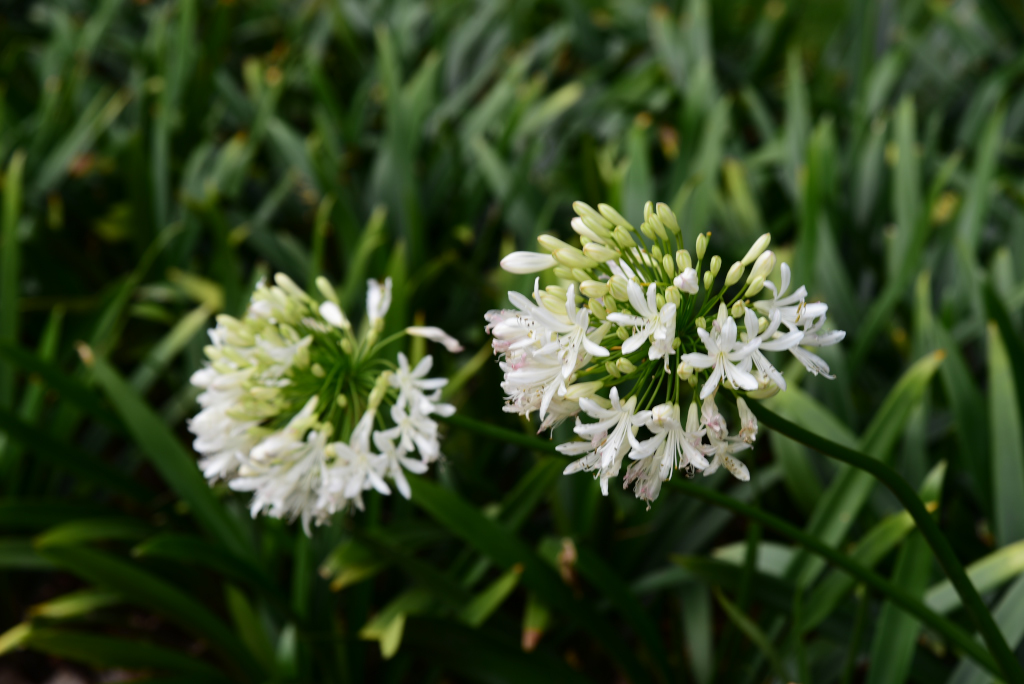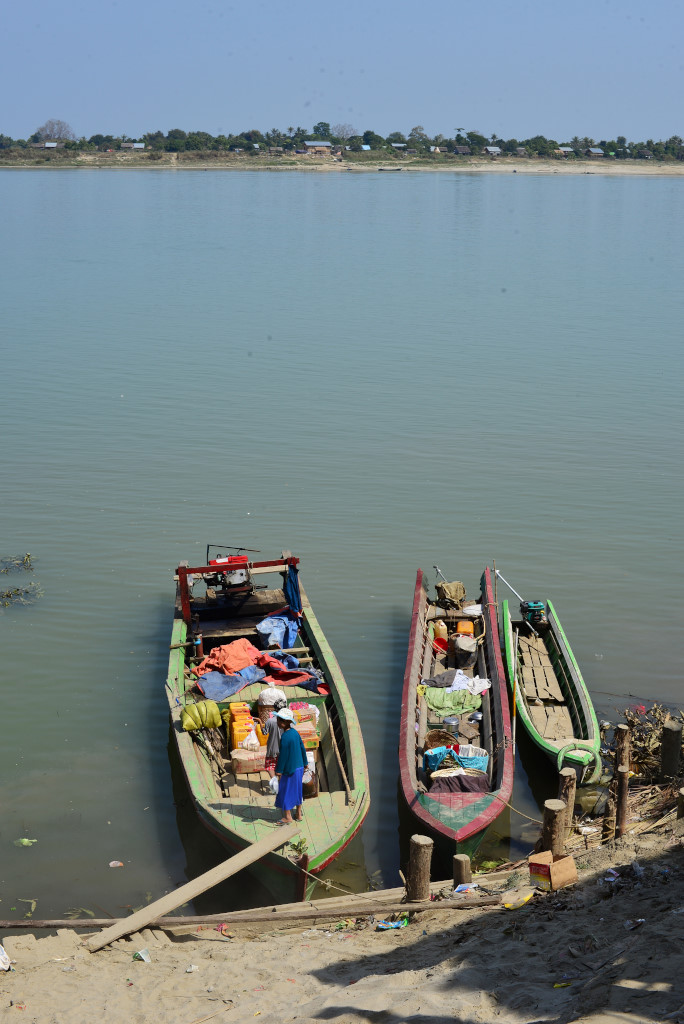February 23rd, 2015
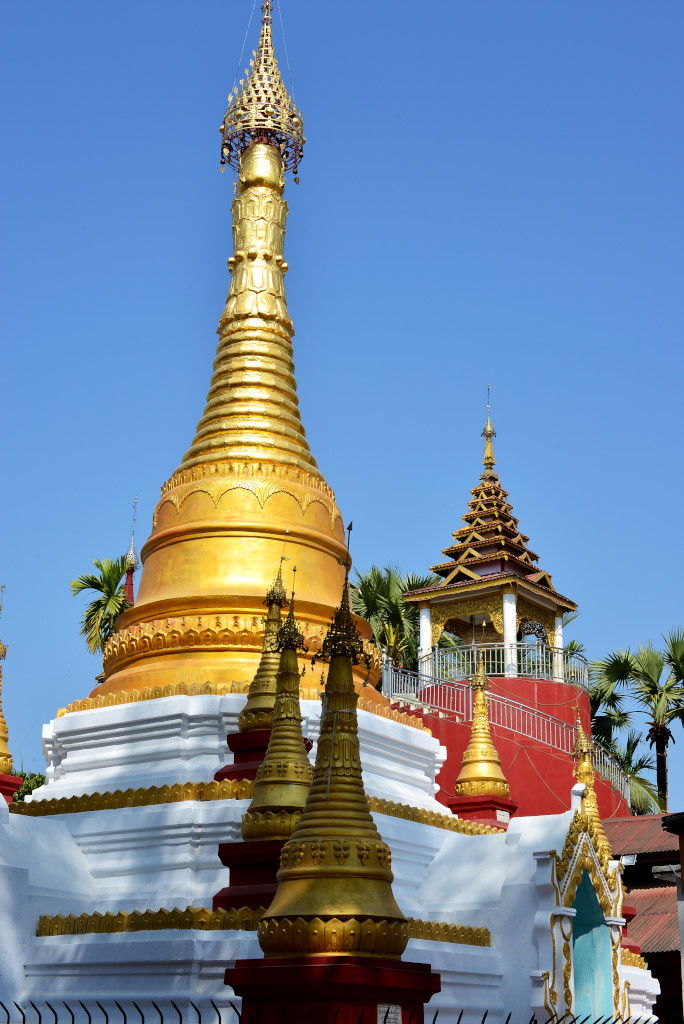
I wake up in the morning and it is actually quite chilly in the room. I think vaguely about closing the windows, but instead huddle deeper underneath the meager blankets, knowing full well the day’s heat will build readily. Towards 9:30 am I hear a voice calling to me – do I want to go to Katha? Not today, as I have big plans for Shwegu – but I will be leaving tomorrow morning, insh’allah.
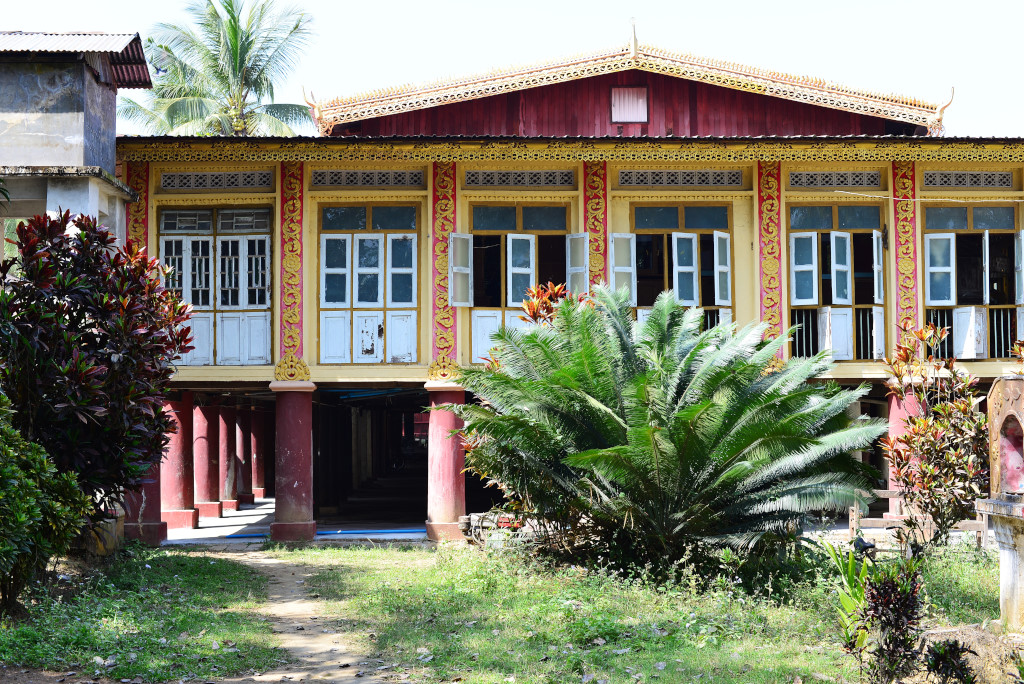
And some time later, when I have actually completed the journal entry for yesterday, I am very ready for breakfast, and head out to the main road. Seated on my perch on the patio of some virtually empty restaurant, I watch the heavy traffic of Shwegu amble by on this auspicious Monday morning.
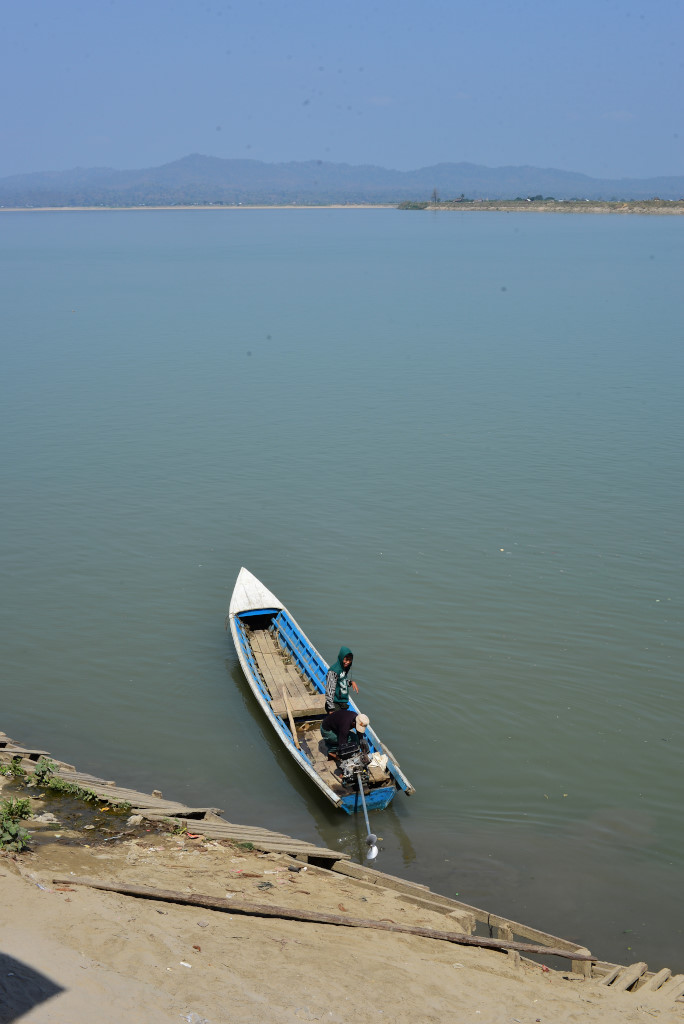
The young children playing with boxes across the street, the young women covered in face chalk, their gleaming black hair carefully bound under the typical shallow conical bamboo hat, seated elegantly on the old bicycles they glide by on, young men self-assuredly racing by on motorcycles, legs clasped together under their tight lungyis, the sickly dog ambling from one collapsed position to the next, and young boys wandering by and pointing excitedly at me when they see me.
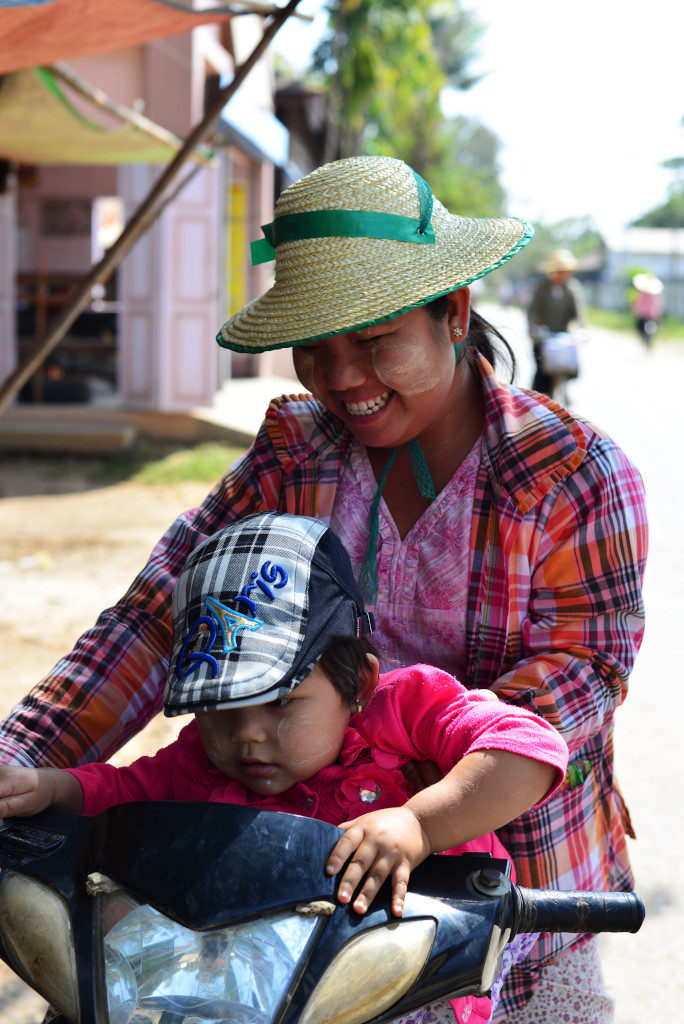
Brunch consists of rice and three safe dishes, a stew of some green and tofu, lima beans stewed in tomato and garlic, and some savory stewed cabbage, with the obligatory accompanying slightly sour soup, and happily not a trace of fish paste.
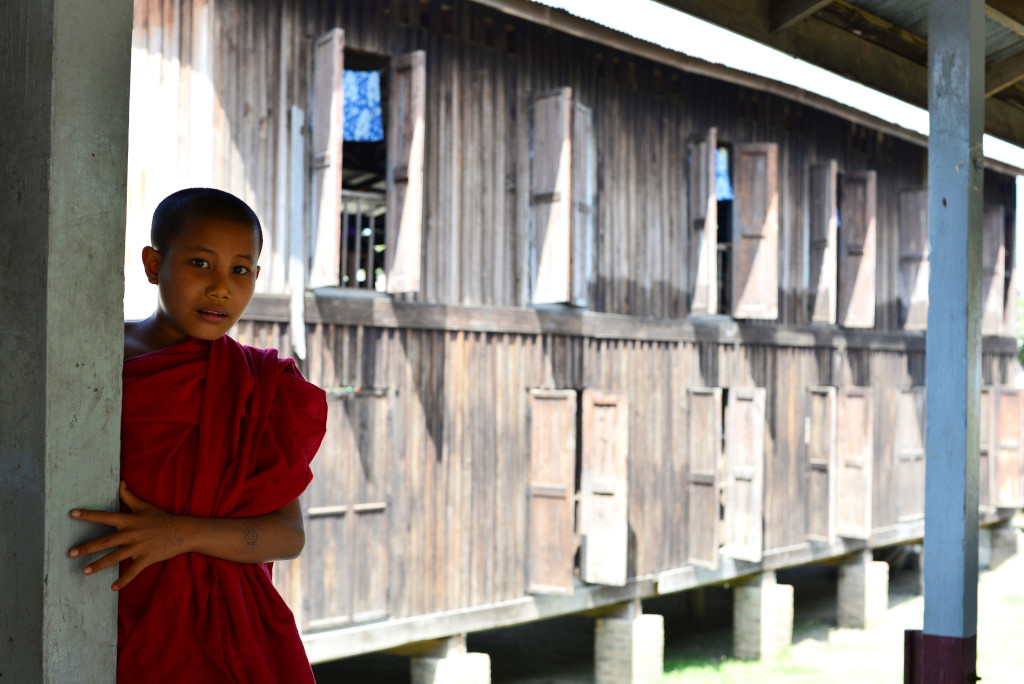
Behind the SAG Guesthouse peers the portal leading to a pleasant monastery which is logged on the town map as the 2500 monastery, hardly a very useful title, but nonetheless unique, at least for Myanmar. Far from unique, a small golden stupa and tiered tower with embellished gilt fascia on every level.
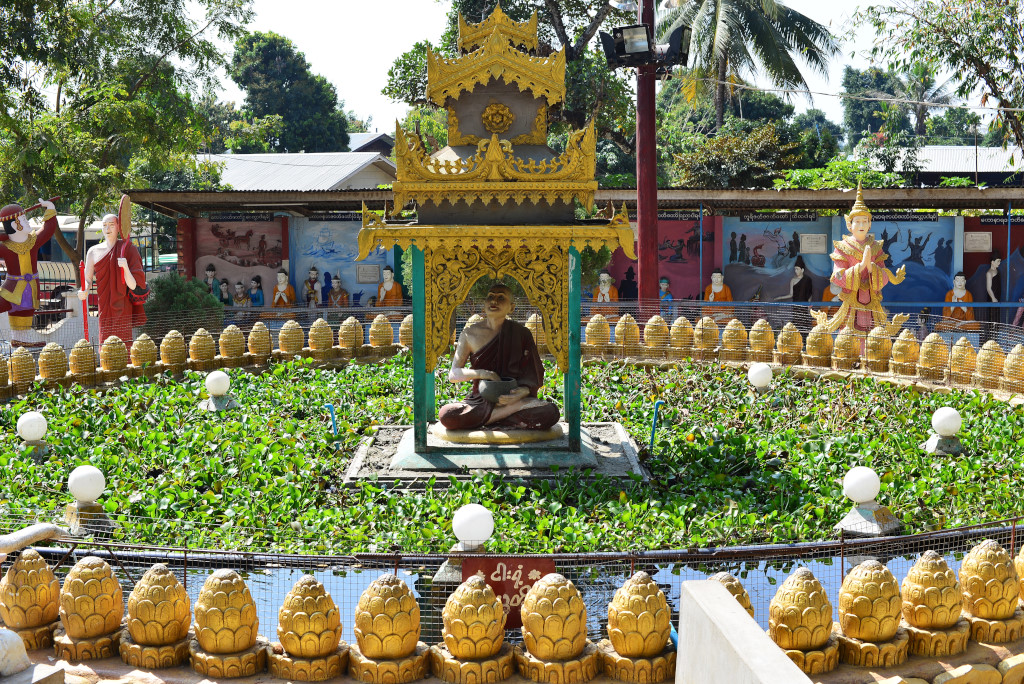
A statue of a devotee sits inside a tiny gold-screened gazebo in the middle of the lotus-covered pond, the surrounding wall crested in golden lotus bud-shaped finials, two stone elephants replenishing the water in the pond by means of their trunks.
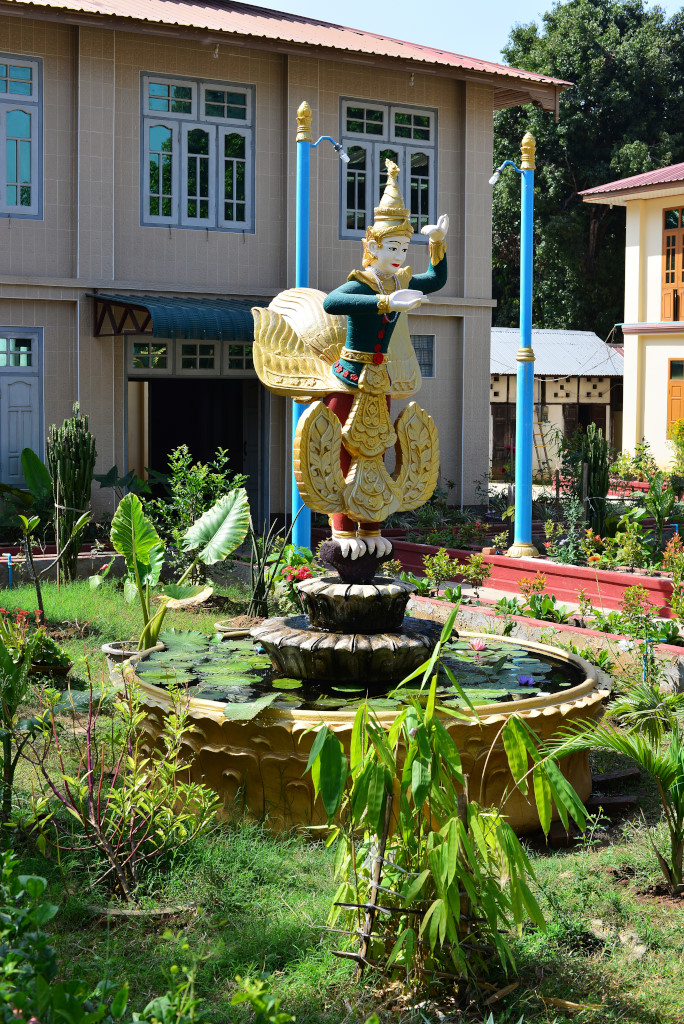
Two young runts doubling as popsicle sellers park their bicycles against the gate and run towards the pond, thrusting their arms into the water, then pulling back when they see me. I am not sure if their intent had been to steal some of the koi in the pond, but it’s not as if I would care.
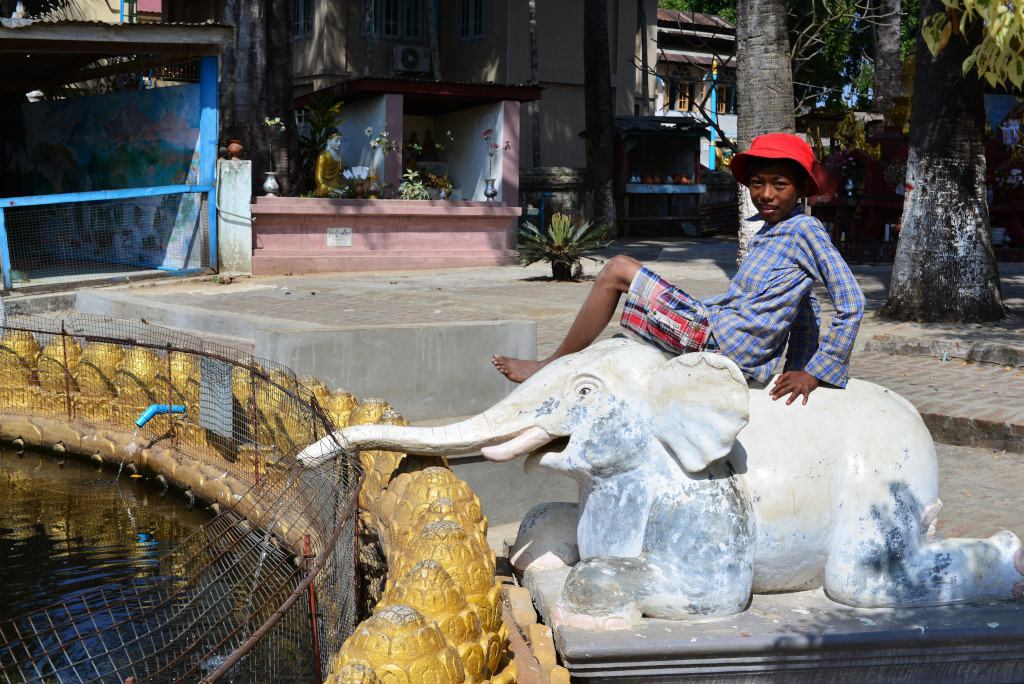
In the adjoining garden, statues partially human and partially mythical creature stand guard over tiny ponds as colourful butterflies swoop erratically through the flower beds. Some dog deeper in the compound begins howling, but I am long gone before it even bothers emerging.
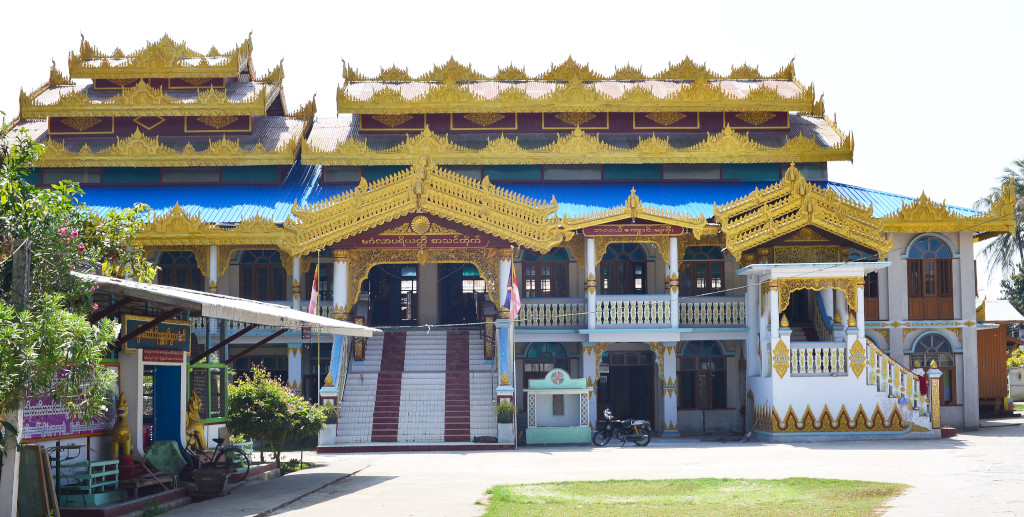
Walking along the riverfront road, I take more random snaps, some locals perplexed, some enthusiastic, others turning away when I point my camera at them. One young local of Nepali origin asks me what I think of the town. ‘Well’ I tell him carefully, ‘it’s a small town, like anywhere else, with its good and bad sides, not a lot to do, but traditional, relaxed, low-stress, with not much potential of achieving much, but rich in quality human relations. Anyway, if you want excitement, move to New Delhi or Mumbai – but don’t expect some peaceful and relaxed lifestyle – unless you have a LOT of money …’
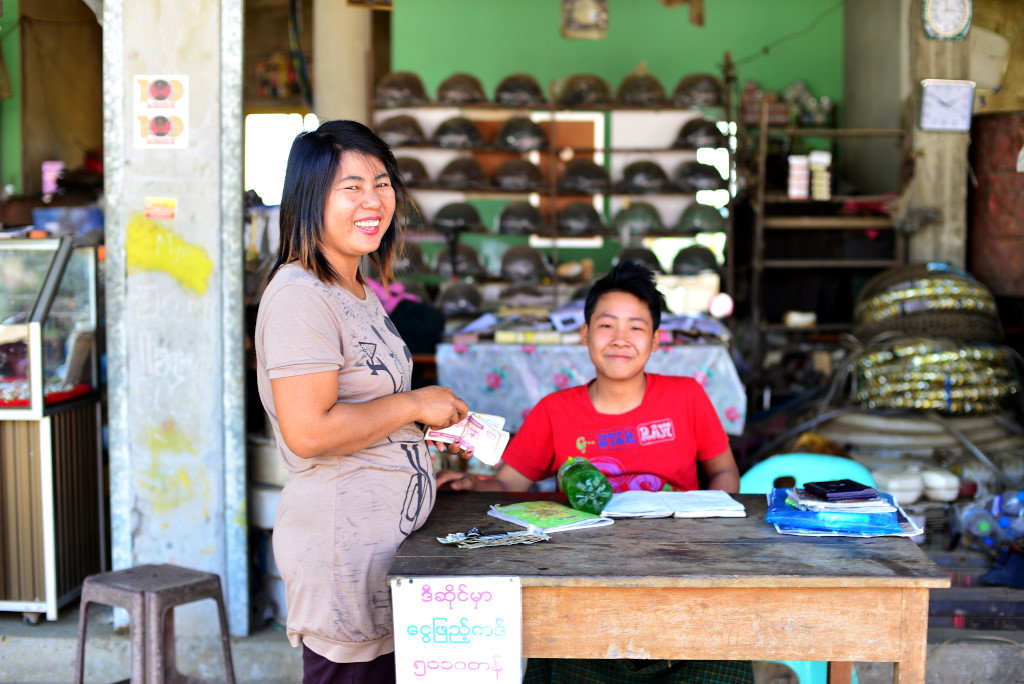
He obviously is not wild about the place, despite the fact that his family is probably not starving, what with a herd of 200 milk-bearing buffalo they own. He lived and worked in Phuket for a while, many Burmese opting to work in Thailand, but there Gopal saw a very different world, that of westerners, such as Russians, who – he seeks to find the proper words – seem a bit strange, ugly, and no one likes. Nothing like broaching a delicate subject! I attempt to rationalize the nature of the Russian people, but don’t feel motivated to invest much effort at changing his opinion.
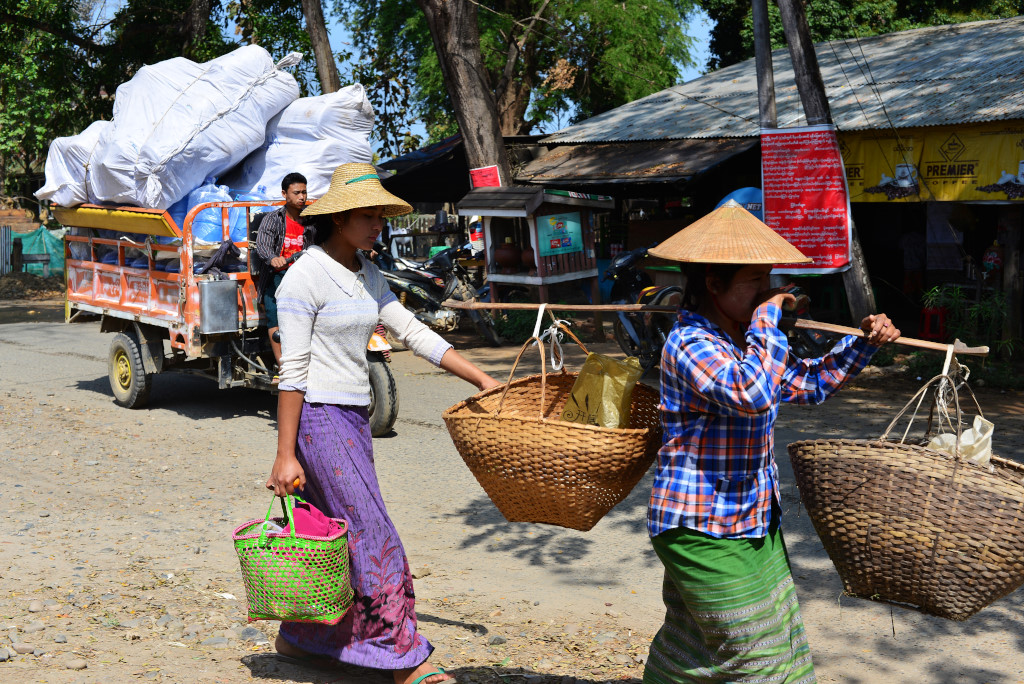
He leaves for his Hindu temple where many are apparently expecting him. At the corner stall in the approach to the market, another Nepali-Burmese asks me if I am a Hare Krishna, an impression I seem to make as I wear a cloth bag around my hand, in fact concealing my camera, which at roughly $2,000 in value probably is best not to have on constant display, not that my manner of carrying it doesn’t arouse enough suspicion.
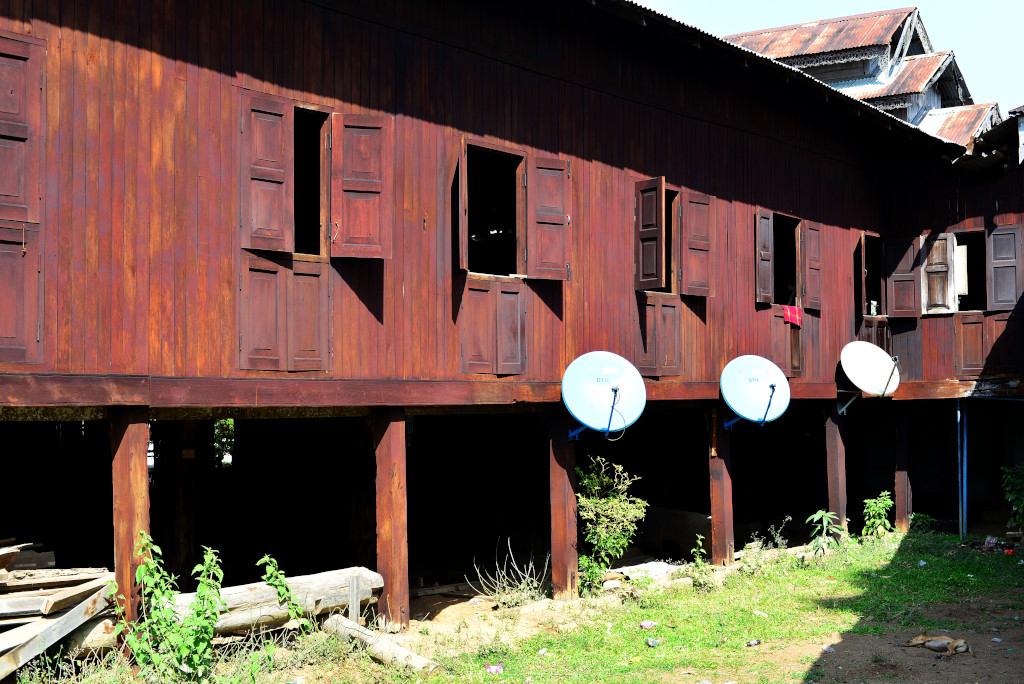
I walk some ways further along the riverside road, the teak bungalows eminently comfortable and well-maintained, as inconsequential as they may look from the river, not that the typically filthy embarkation area helps make a good impression of such towns. It would be for the most part difficult to capture much more meaningful photos as they in the end all look the same, their aesthetic power also lying in the sense of the entire structure and its setting against neighboring houses. Alas, a camera has its limitations.
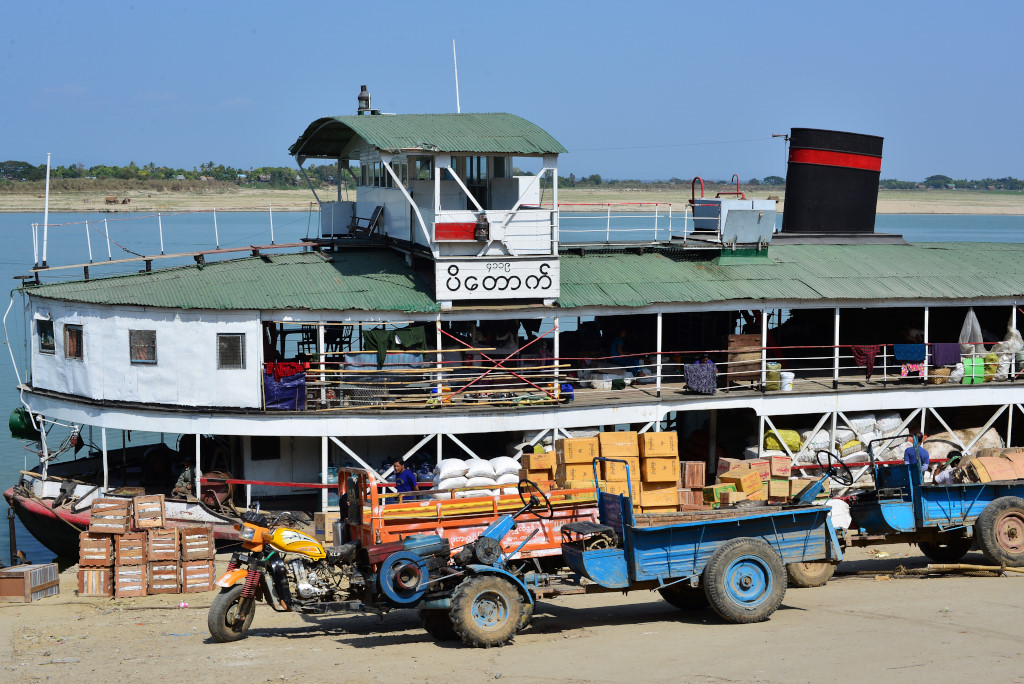
The young beanie-wearing popsicle salesman is now in full swing with local uniformed schoolboys, picking their favorite flavours from his ice box, and by the time he gets around to the crowd of girls who insist on buying me a tamarind flavoured one, his supply is almost depleted.
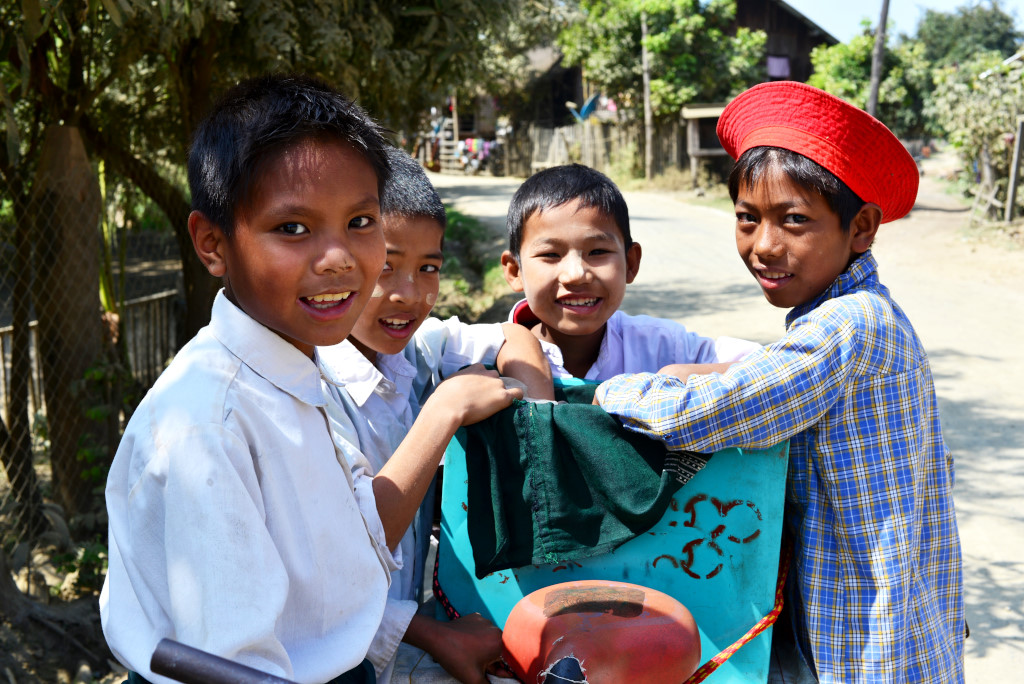
He is popular and self-confident, as is often the case with young boys in the Buddhist cultures, by the time of their late teens becoming more placid, serious and manly. He later cavorts inside the gathering hall of the adjoining monastery with the young monks, who probably have little interest in their religious practice, the dogs lying on the dividing walls raising their heads to peer at me wearily.
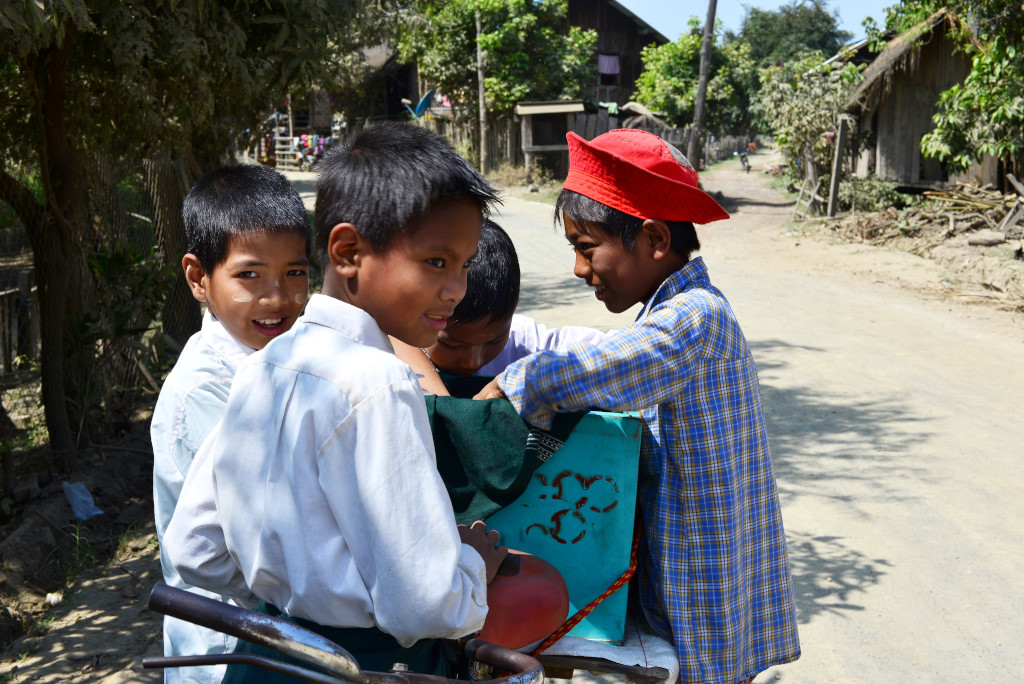
The southeast side of town has more of a country feeling, people blissfully ensconced in their almost exclusively raised teak bungalows, fences stained in the same dark paint leaning to precariously underneath the heavy foliage, the path meandering along the river, aggressive dogs threatening to attack at every step, eliciting unusually proactive steps on my part, which invariably send them howling in retreat.
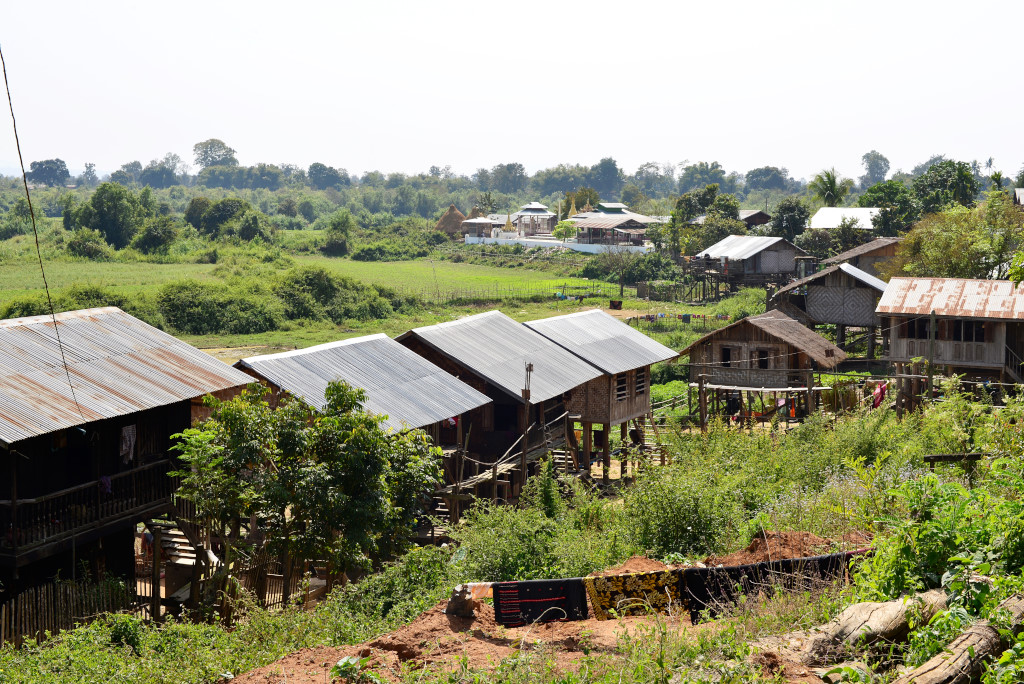
Further along in the bend lies the utterly dilapidated Shwe Antaw monastery, however atmospheric it may be, the packs of stray dogs lying on the ground roused and then dispersed.
The small stupas of the Shwe Paw Kyawn paya are visible on the island across the river. I see longboats plying the water to the island and returning, but where they depart from is hardly apparent. There is supposed to be a jetty adjacent the Shwe Antaw temple, but the men gathered where the path reaches the cliffside wave me to the principal jetty.
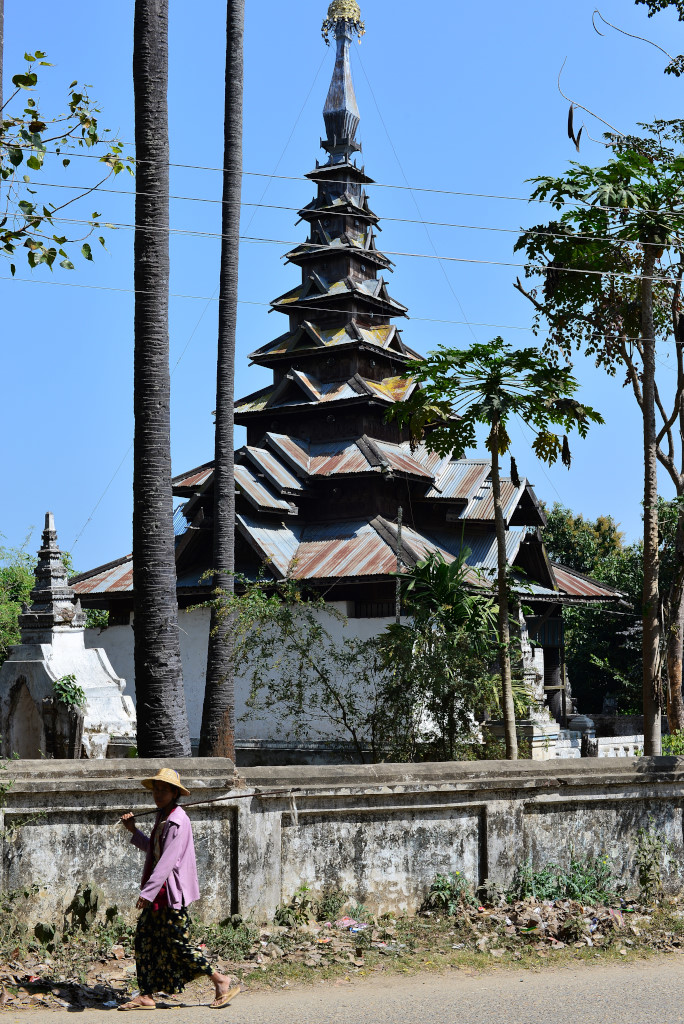
Away from the water, the dirt paths characterized by more of a country feeling, assisted by the small herds of buffalo and pigs that are sheltered on some lots. More dogs, playing children, the main road, another temple, and then back inside the residential area. I encounter sort of a playground occupying a crew of mostly young boys in a fairly unusual way, the youngsters huddled around a pool table, shouting and gesticulating brashly as they play pool, the game somehow augmented by hands of cards.
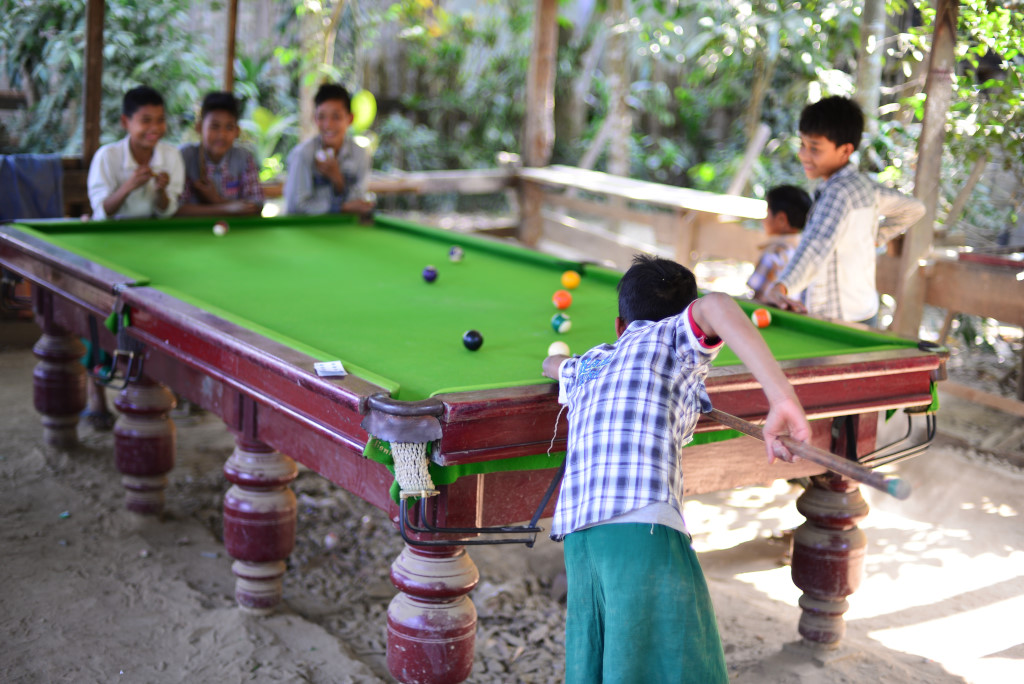
Pointing my camera at them amplifies their frenzy, and so I migrate to the sandal-throwing area, where another group of children expertly toss their sandals into a central area on either side of the playground, one participant trying to displace the sandal of the prior one, vaguely akin to curling, the children deft and precise in their throwing. A younger boy plays with a toy machine gun, pointing it in my direction while the older boys tease him mercilessly.
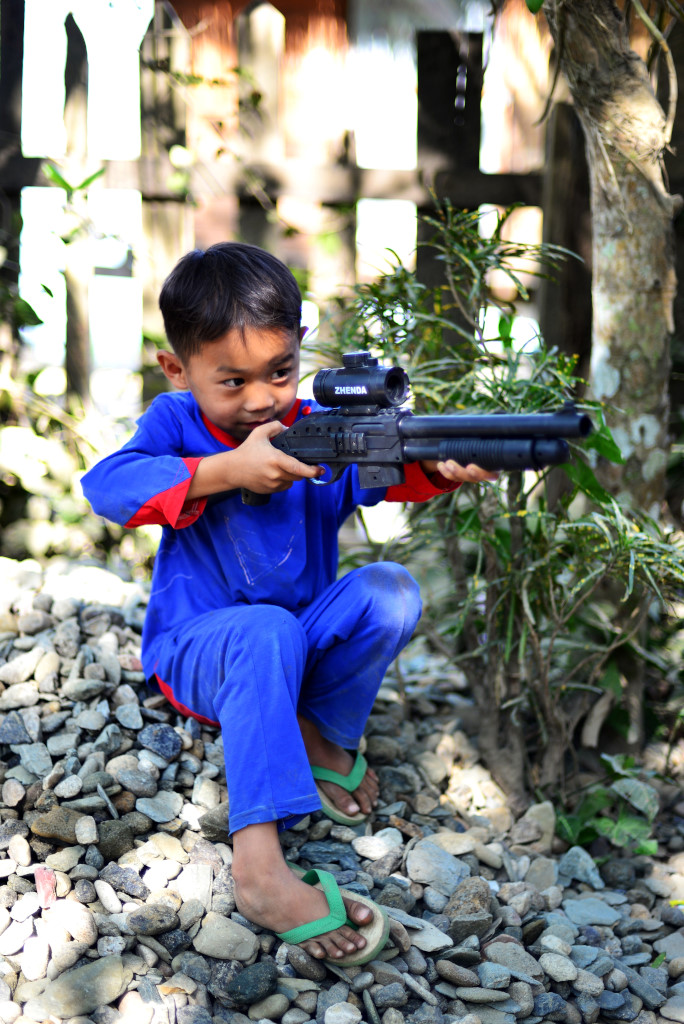
I wait at the jetty for any sign of boat traffic to the island just out of sight to the right but see nothing. A chalk-faced conical hat-wearing woman motions to me whether I want to head to what I presume to be the island, for first 3,000, then 2,000 kyat. I am not quite clear if that is where she is heading, but my understanding is that shared boats cost a lot less per person. So how does this work – do people just line up for the next boat, or do individual parties hire their respective boats?
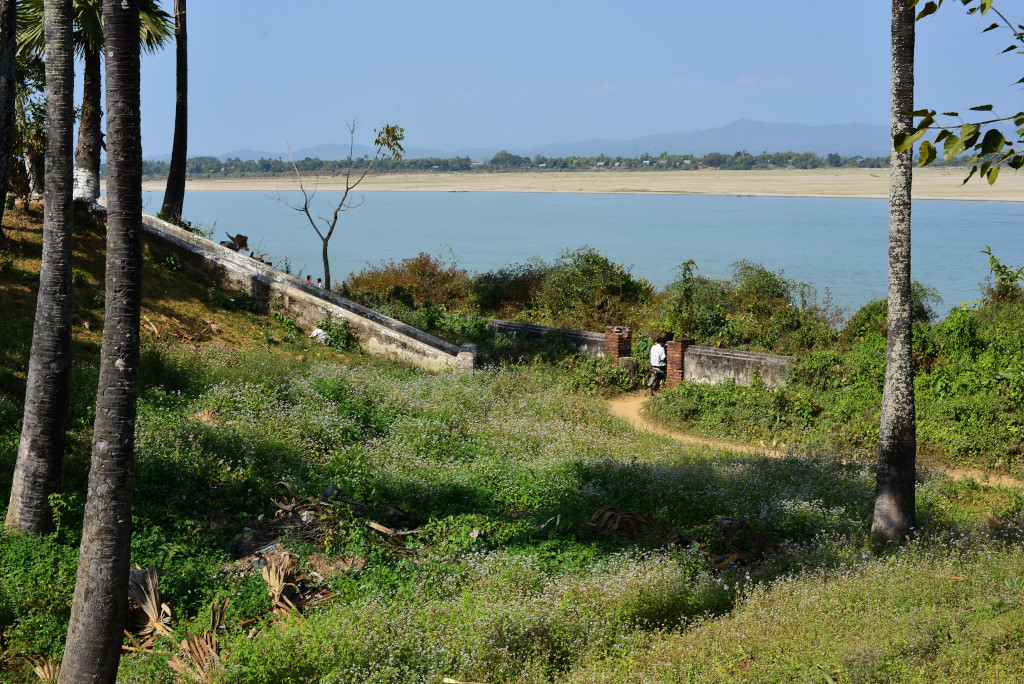
No one else approaches me, I see no lineup anywhere, no sign of boats arriving or departing, even though there seemed to be lots from the promontory earlier on. No one speaks English, so trying to get any information would probably prove as embarrassing as it would be useless. And even if I did get to the island at some reasonable expense, I would end up being faced with the real possibility of being stranded there, thanks to an inability to communicate with anyone.
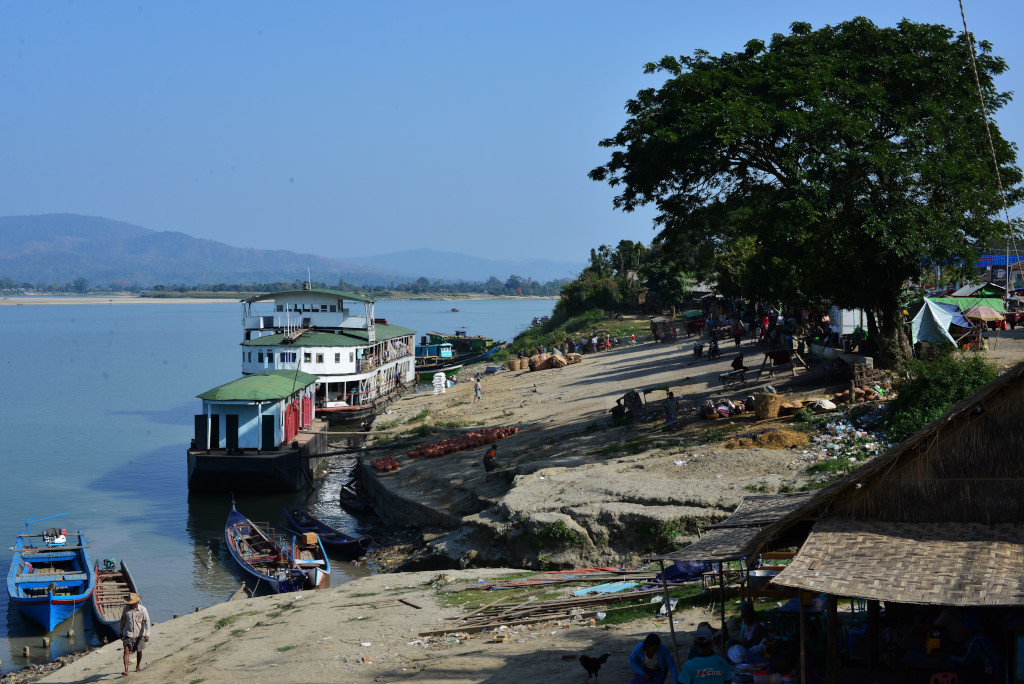
I could go back to the hotel and just spend the rest of the day surfing the web – if the internet even functioned in this town. The loss of the day is particularly palpable inasmuch as I may have barely a day in Katha, depending on the government ferry service, and the town may be far more memorable then Shwegu. And then I have just under two weeks left to see the country …
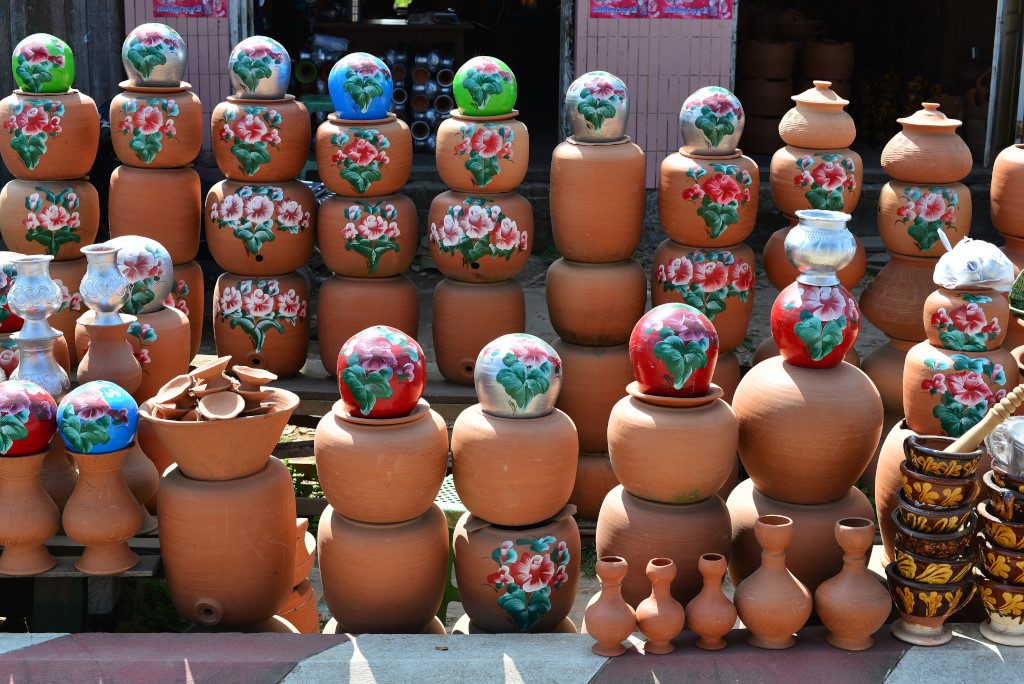
I trudge back in the direction of the hotel, the sun still high in the sky, and at one of the outdoor eateries, Chinese pork buns and samosas the sole food items. The police officers sprawled in their chairs enjoy their juices, and probably are not looking forward to the day in which their powers will be diminished and the populace proves to be less malleable.
On a more prosaic level: an overly sweetened papaya juice may be a good motivation for some to write postcards, but not for me.
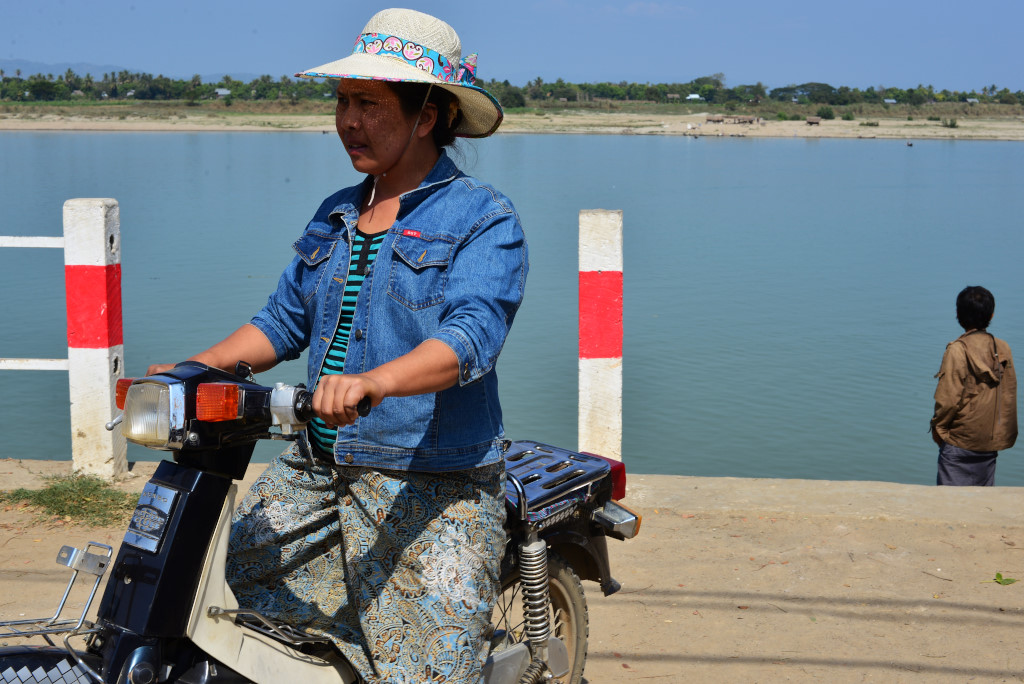
More greetings and ‘Ming Labar’ from smiling locals as I retrace my steps to the SAG Guesthouse.
The Chinese corner mini-department store stocks every manner of household electronic device as well as a shelf of standard packaged food items. I would love to purchase something to take back to the hotel and snack while I write, but nothing looks compelling in the remotest.
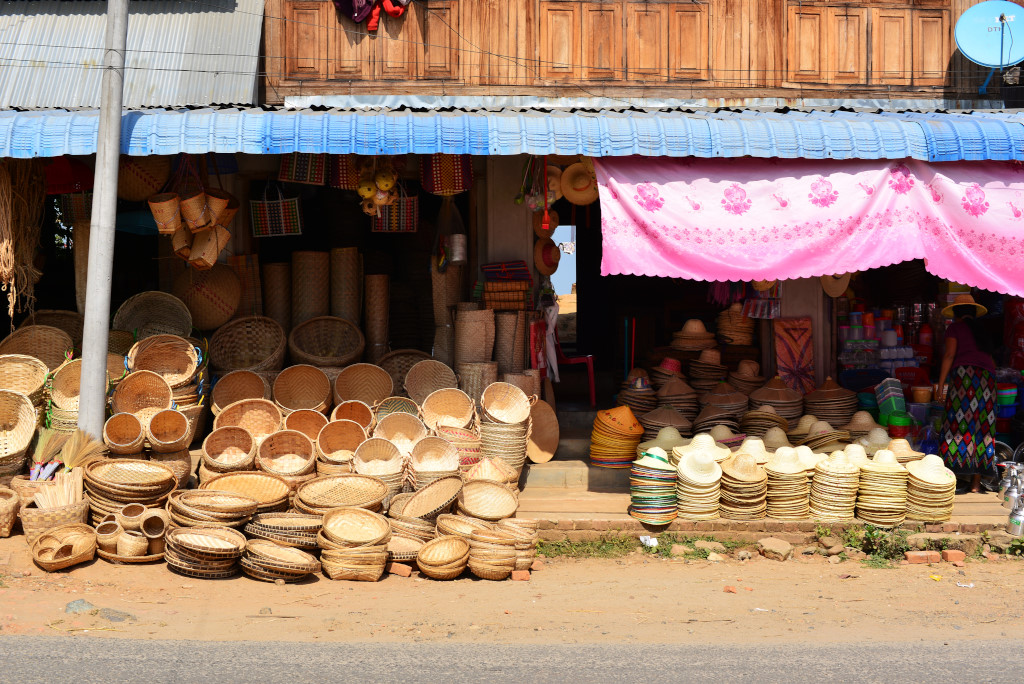
But it’s amazing what the prices are when you get off the tourist circuit – a carton of cigarettes, 4,500 kyat (U.S. $5) and a mickey of rum (1/3 L) 90 kyat (.90). That reminds me of the prices 30 years ago in Guatemala …
I could try the canned fish, but I have no can opener…
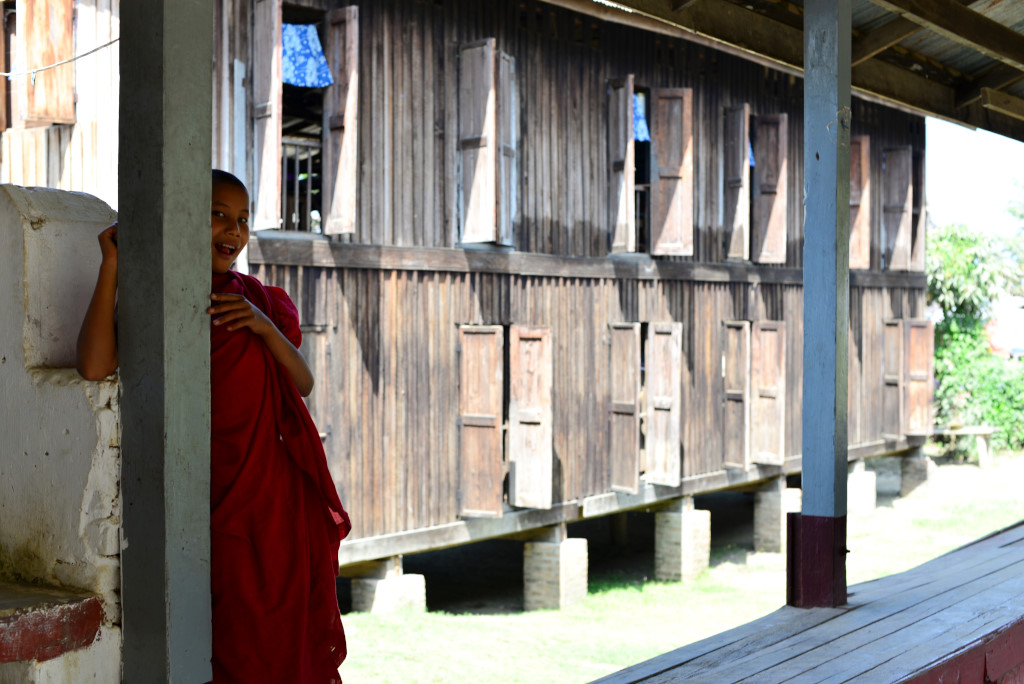
The voice of the muzzein opens up unexpectedly from the mosque across the street. Catty corner from the hotel, small chairs are set up against pastel teal tables adjacent a stand with every manner of surimi people in this region can’t get enough of. The emaciated young men on the adjoining lot spinning a tiny top look at me with wild enthusiasm as I pick away at two flavours of ice cream, both of whose flavours are characterized by an artful and probably utterly unintentional fusion of bacon, surimi, and durian.
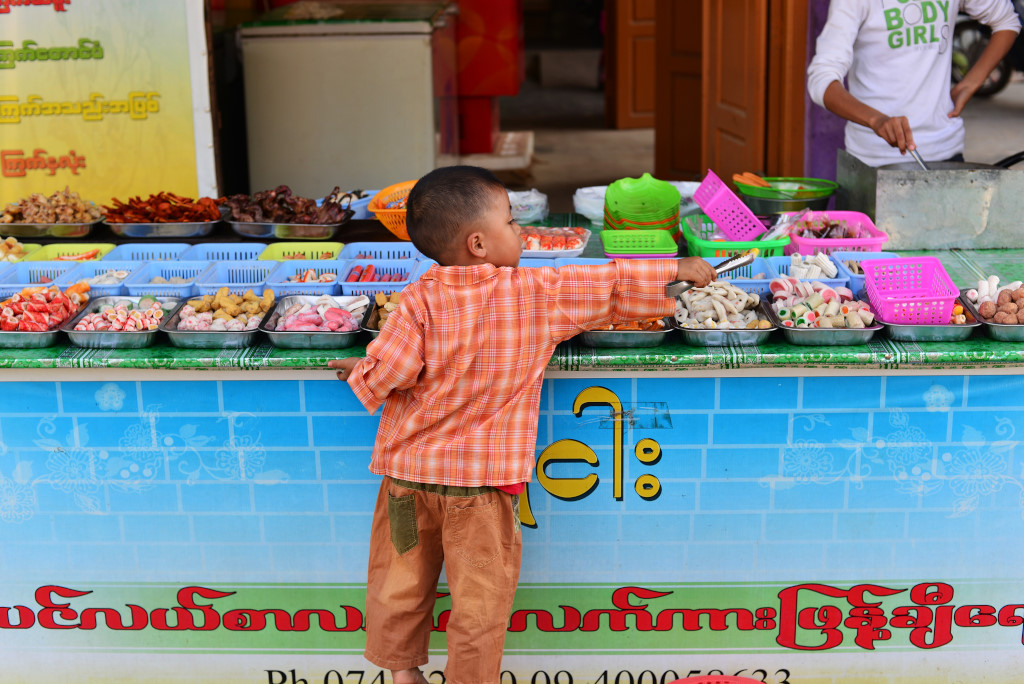
A collection of the whimsically-shaped surimi bits at the grill catty corner to the hotel, reminiscent of the contents of the bulk bins at a candy store. The deep fried mess all tastes the same anyway, but provides a suitable opportunity to watch the passing clientele, a young lungyi-wrapped man eager to stride off with his takeout, a pair of bashful and very pretty young women seated at the table behind me, and a step above, an older man joined by a tall and somewhat bookish man in his 30s.
Even here, the younger generation is busily racing to their next engagement on their motorbike or striding purposefully along the road, looking straight ahead. I return to the juice bar to try out the pork buns, but they are not as good as the place I had them yesterday, and yet I feel obliged to eat them here, as I promised to earlier.

Just like yesterday at the ABC, Burmese hard rock blares through the sound system, blistering guitar solos, wailing operatic vocals and throbbing base lines are not what I expected to define the sound of Shwegu’s night time.
Next to me is a young man, barely 20, smoking and checking his phone messages …
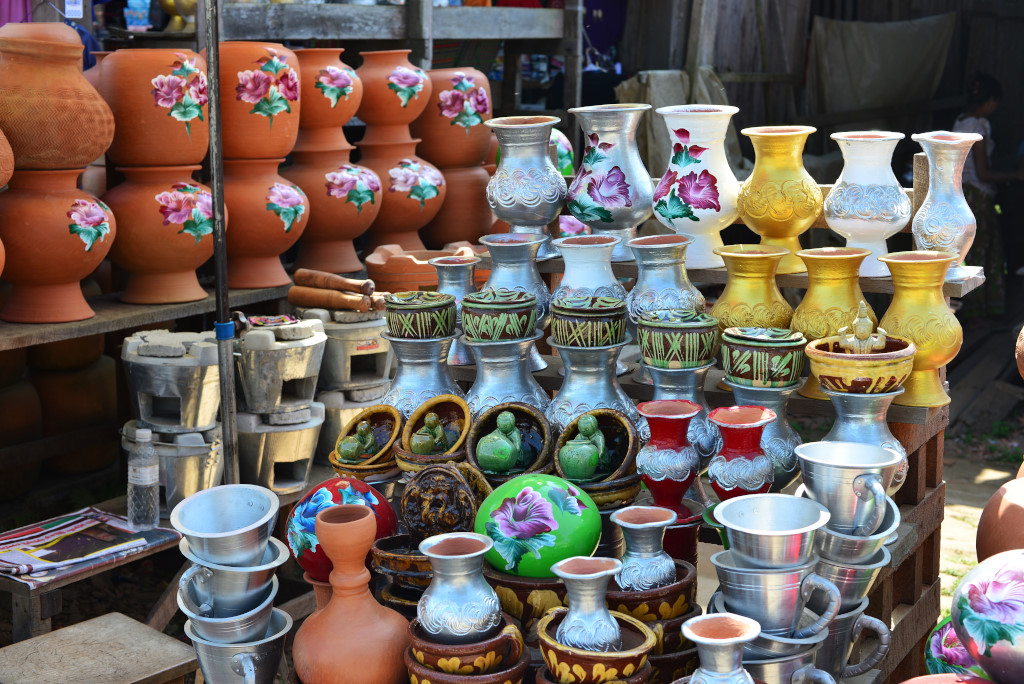
The older and vaguely Chinese-looking man grills me politely as to what I am doing here, why I am traveling, and what I think of the places I have been visiting. I give him my opinions as he watches me impassively. Despite the changes that have been happening in the country, there are still good reasons to not be blindly trusting, as the country used to be riddled with spies.
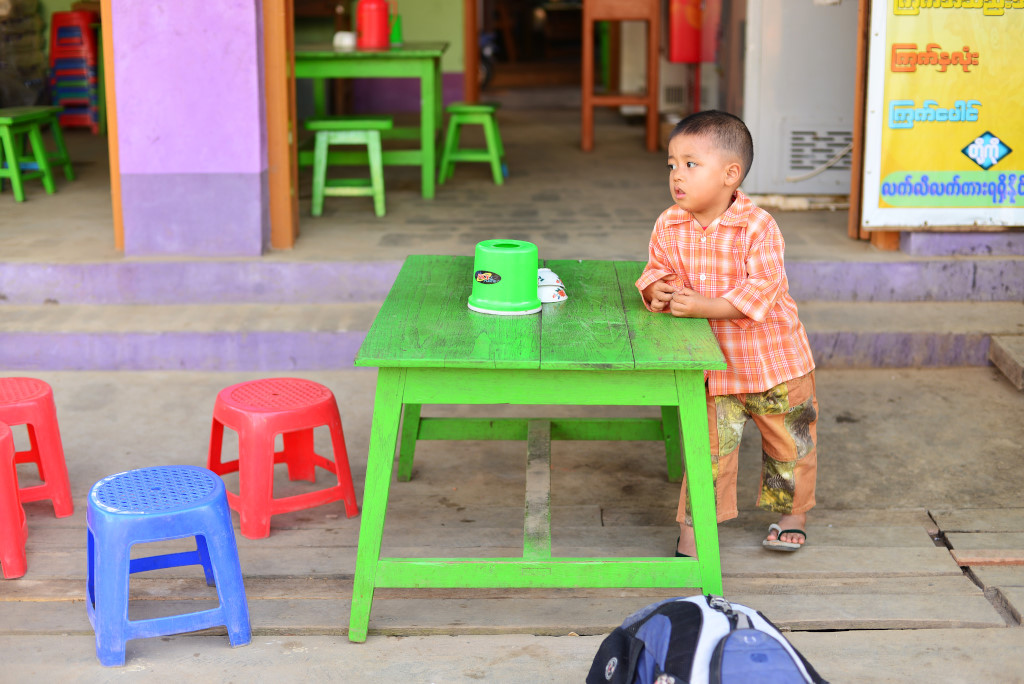
I must in any case leave, as I was to meet my Nepali friend at the SAG hotel, but he apparently never appeared. It looks like I have competition – a racy open-topped jeep is parked in front of the hotel, and from the illuminated light above, I can see the poshest room in the place has been taken.
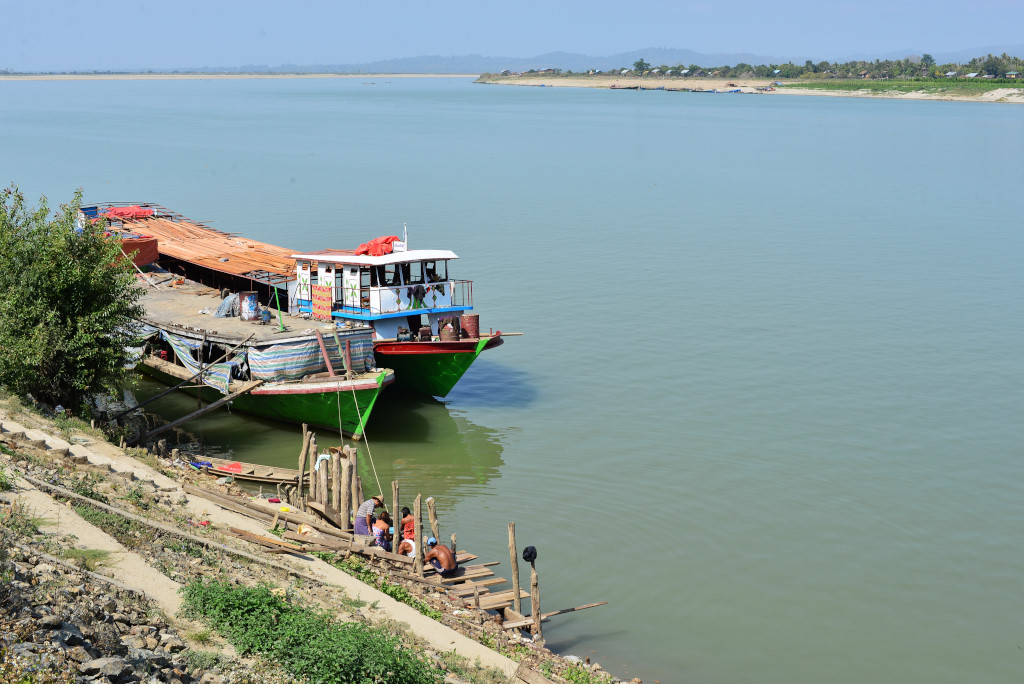
The day has unfortunately not been spent wisely, another valuable day on my limited stint in the country spent inconsequentially in an inconsequential town. Perhaps it would have felt like more had I actually made it to the island in the river. And yet, small as it is, watching many of the people at work or motoring by, I don’t have the feeling of being stuck in the middle of nowhere so much as that of an idle bystander watching others’ lives pass by – a world I have little purview into, and virtually no ability to communicate with.
